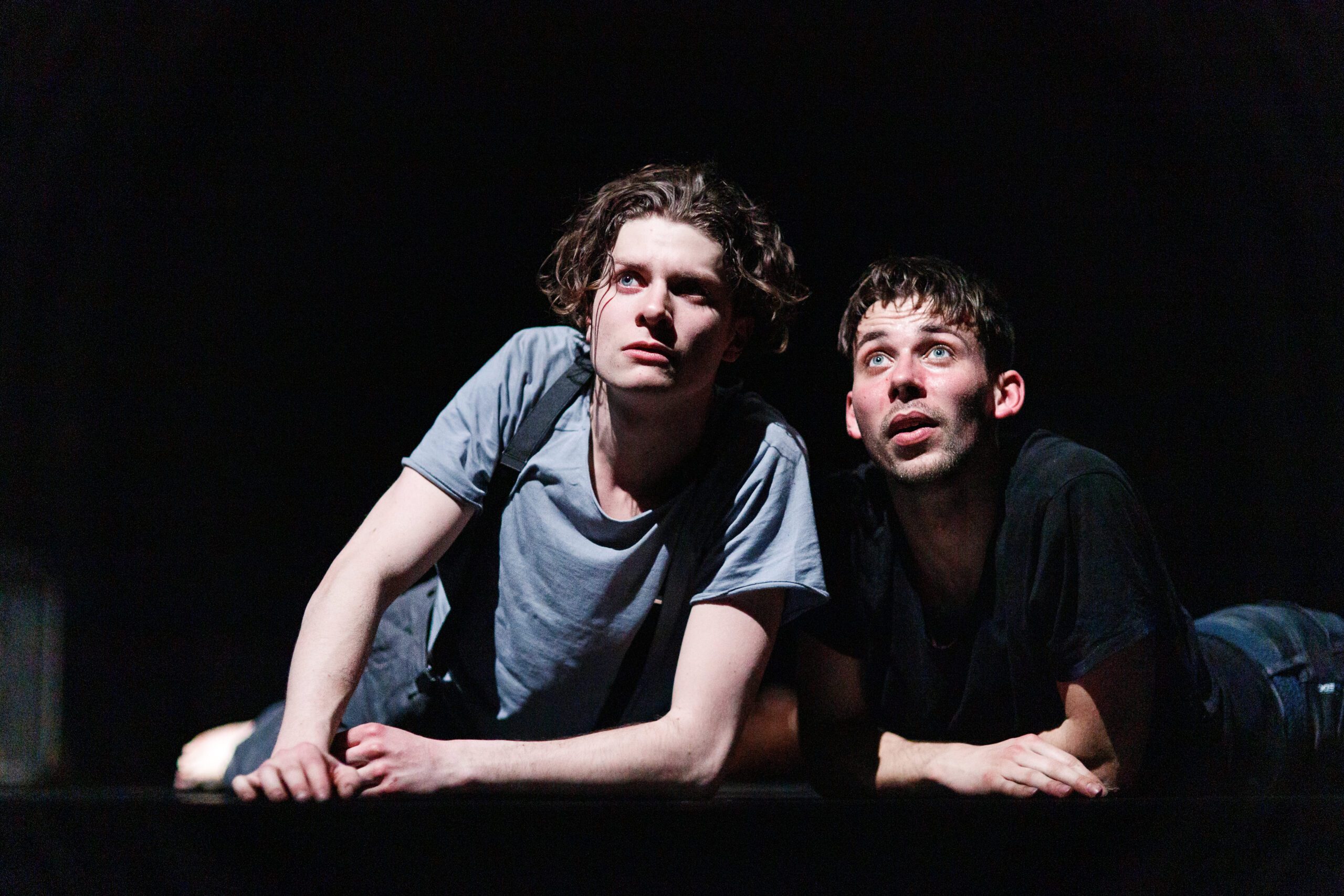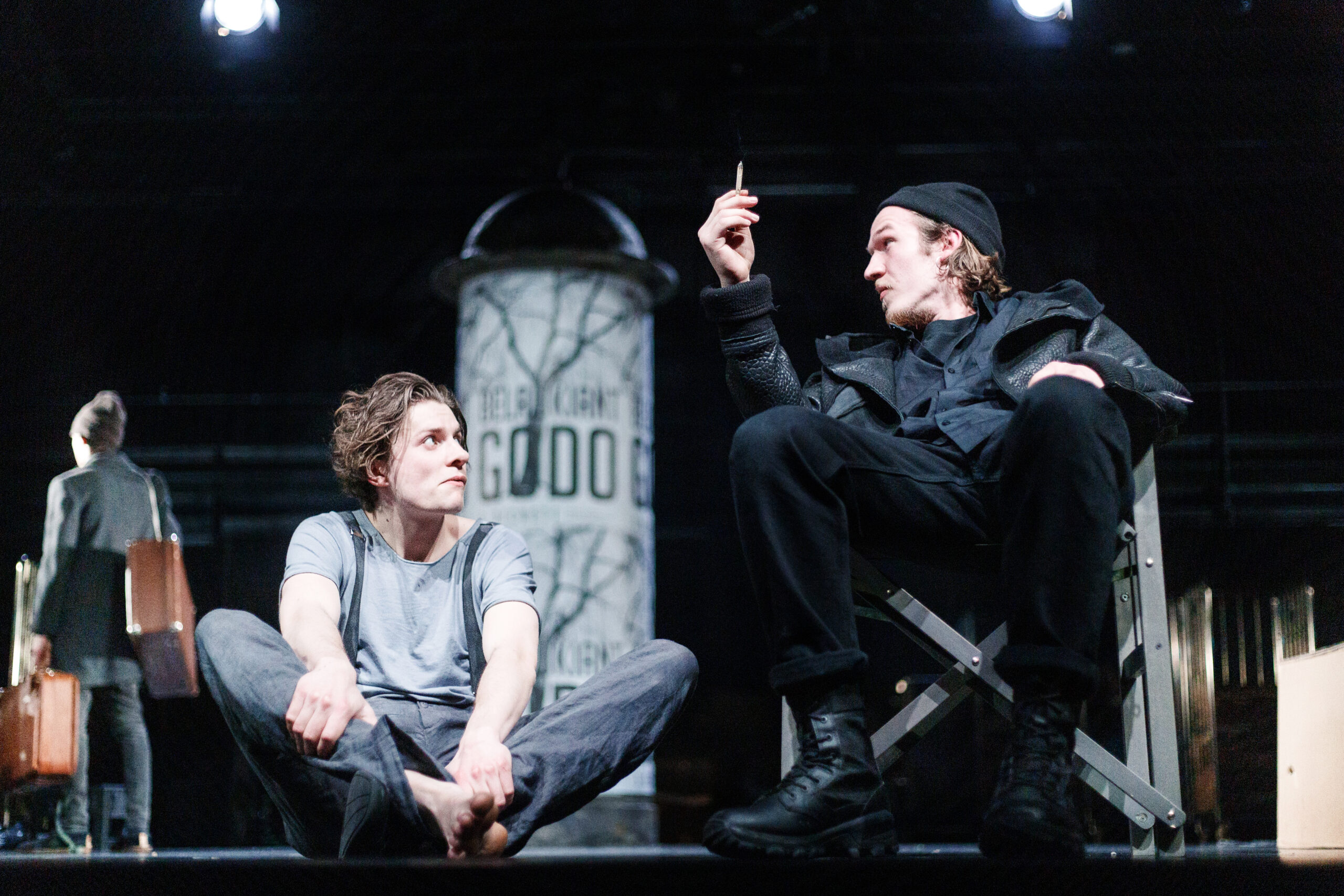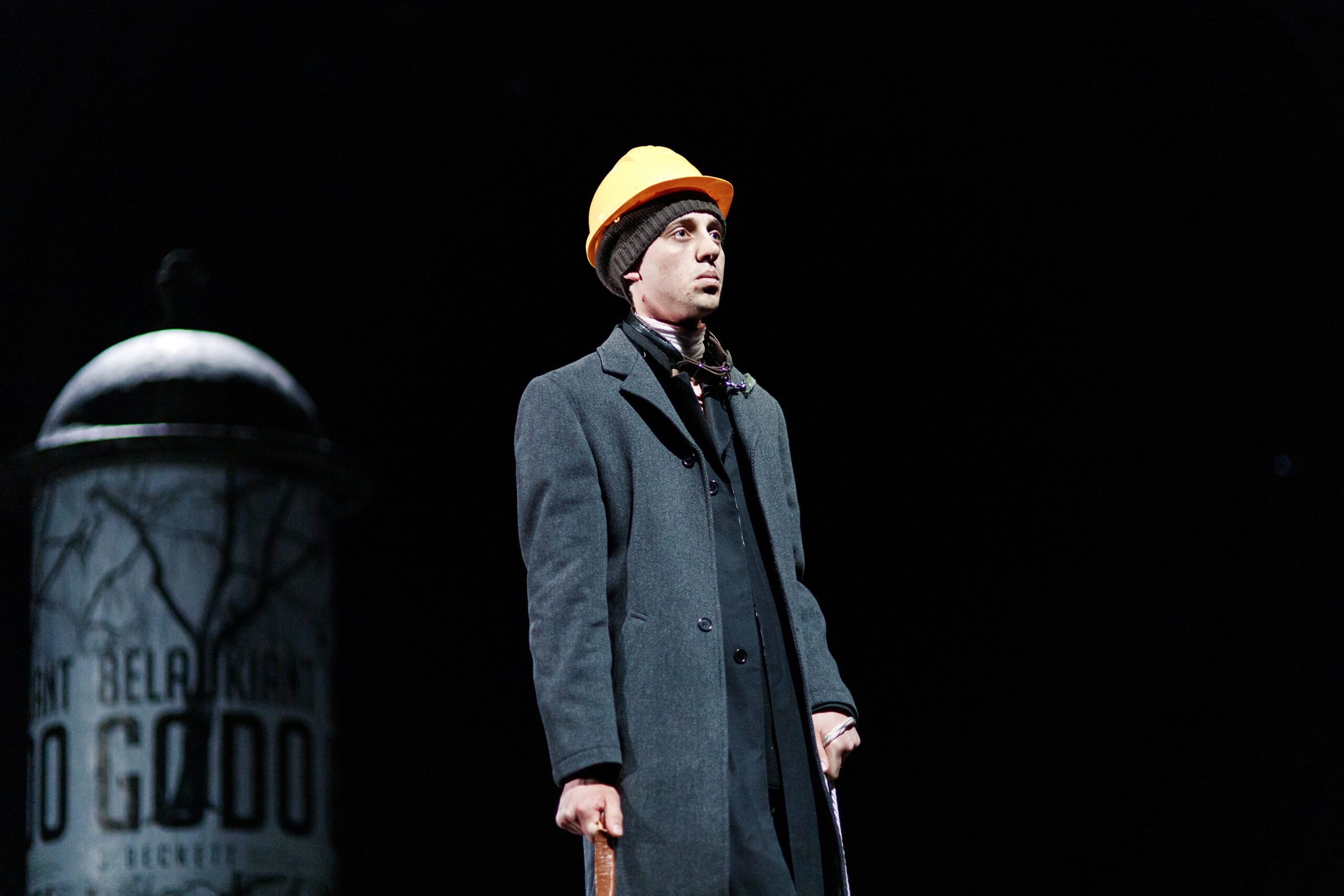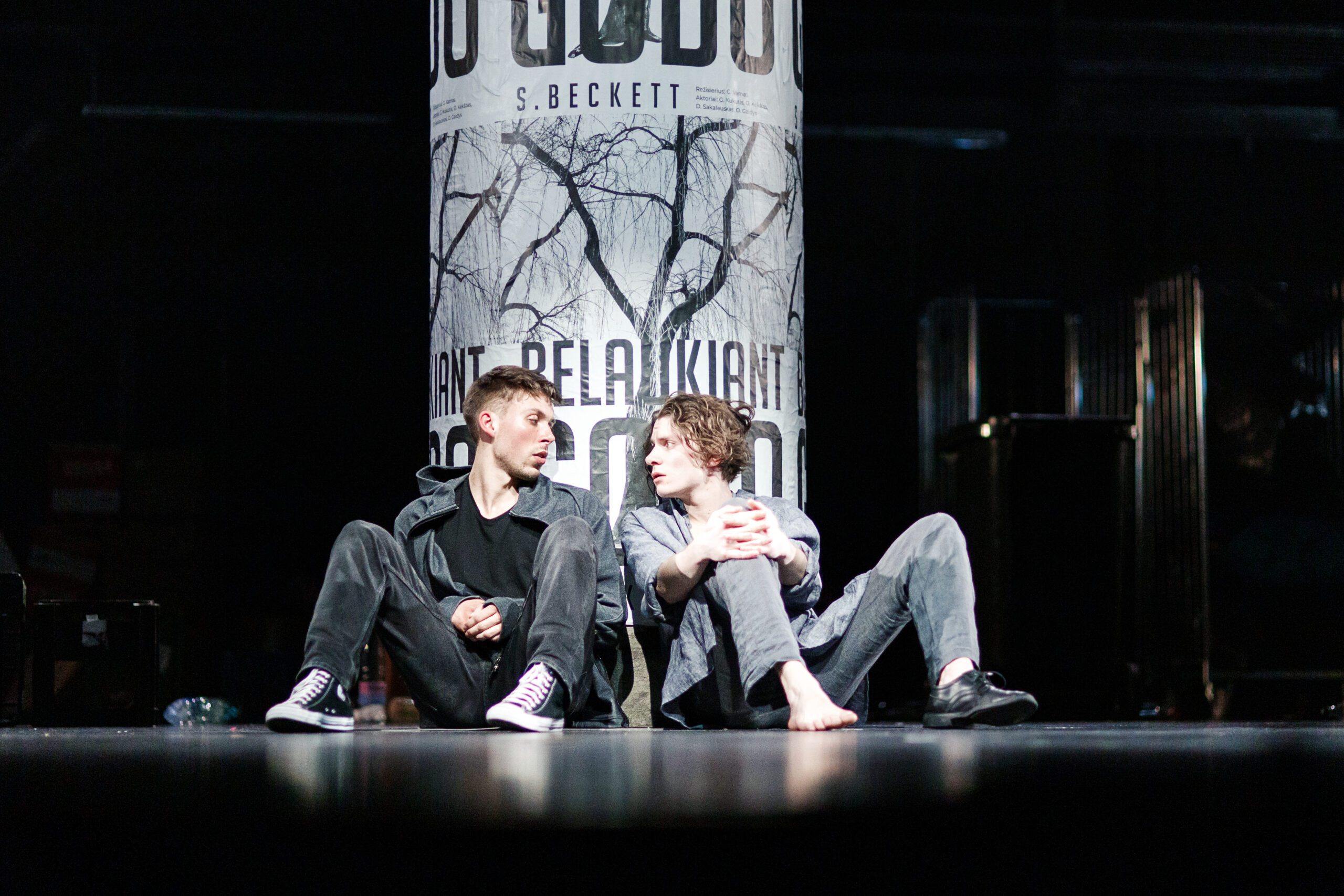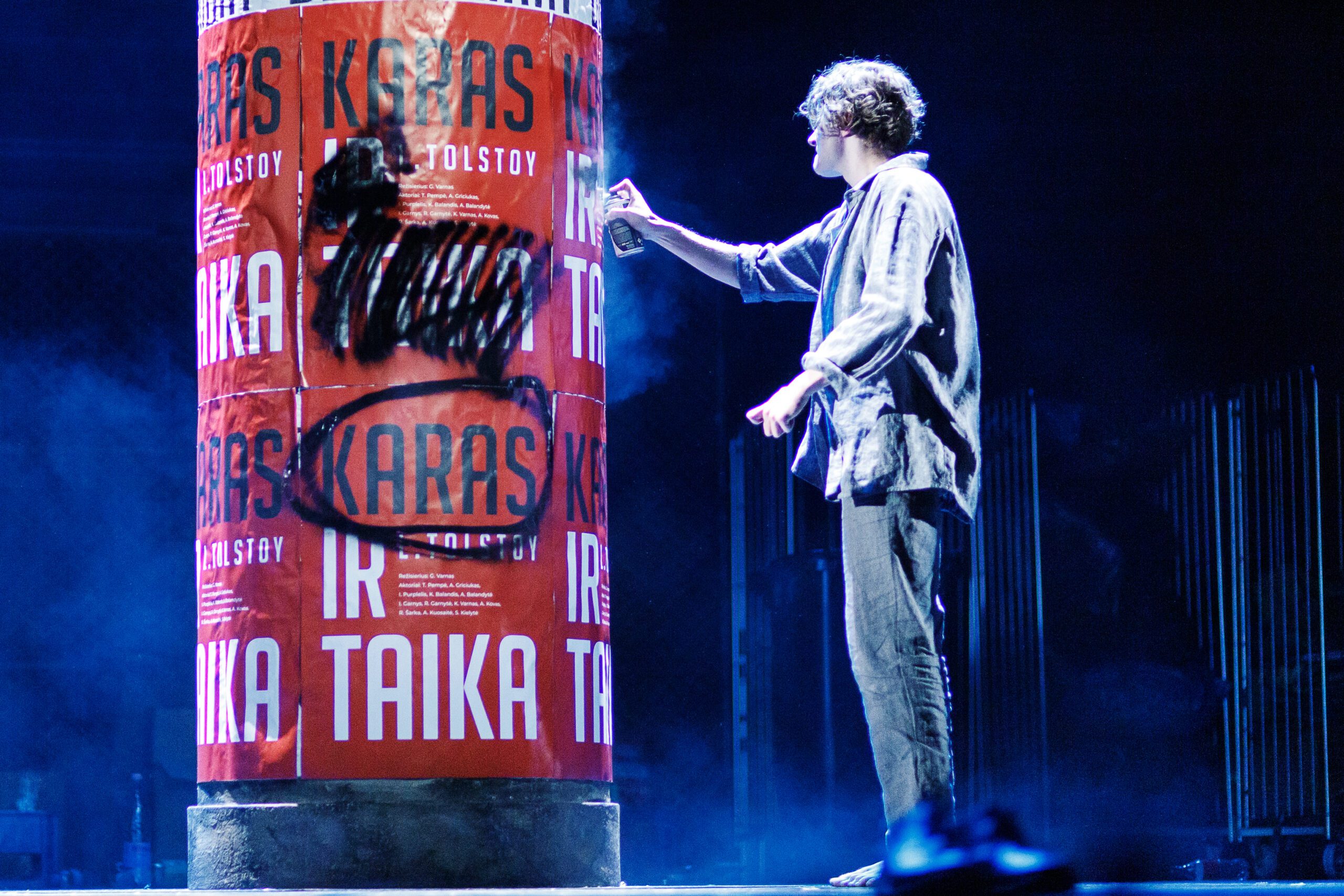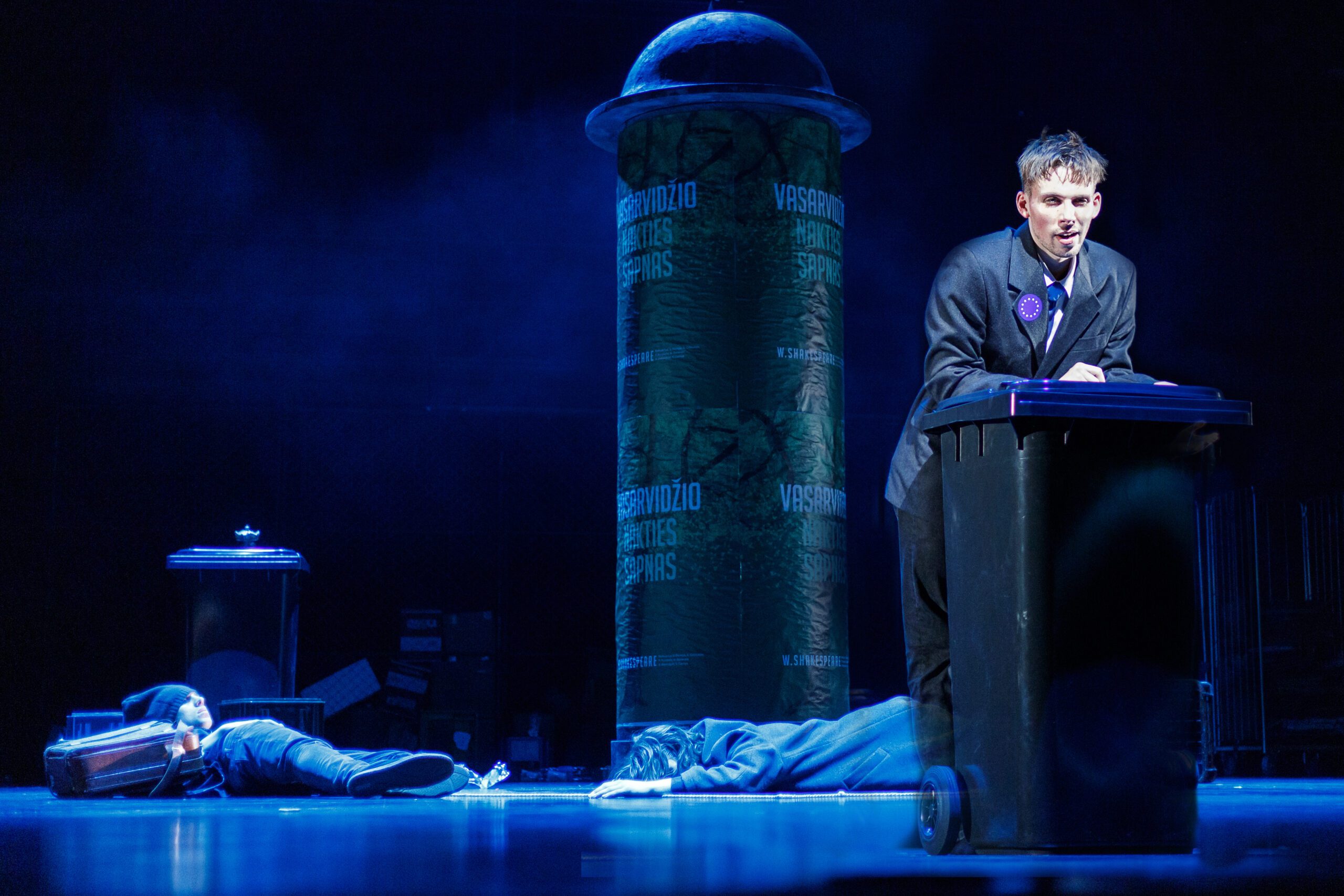The play Waiting for Godot was written in mid-twentieth century, after the World War II (1952), when the whole Europe was going through a physical, moral and existential collapse. “Nothing happens, nobody comes, nobody goes, it’s awful!” – The classic phrase from the play sums up its essence. This strange tragicomedy became the emblem of a new movement in theatre called Theatre of the Absurd, and its author Samuel Beckett earned global fame, Nobel Prize, and was renowned as “a writer who has influenced the development of humanity.”
Director Gintaras Varnas says that this emblematic 20th century play is audacious, absurd, witty, yet at the same time also existentially profound, mysterious. It is a poem about time and transience, about waiting and the absurdity of this waiting. And in the midst of all that hovers poetry, while friendship, warmth and love come to rescue us from the lingering mist of the absurd world. And although Beckett wrote the play about old people, the actors in the production are very young. Young people whose entire life is in the future. In today’s future. It appears that the same text can speak not just about the end of life, but also about its beginning and the fear of living. Today, when the world looks scary, fragile and about to be blown apart. No, this is not a performance about action and struggle, it is not about Ukraine – rather about our West which is WATING… WAITING… WAITING…
The production of “Waiting for Godot” features young actors – G. Varnas’ former students – who are making their debut in theatre.
